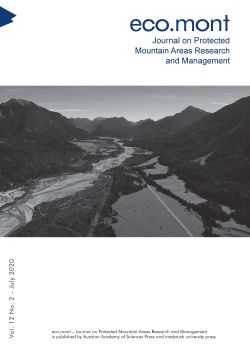
Eco.mont Vol. 12 Nr. 2, pp. 33-40, 2020/06/25
Journal on Protected Mountain Areas Research and Management

Outdoor winter sports activities are growing in popularity, causing conflicts with sensitive wildlife species. Many studies have shown negative effects of recreational activities on wildlife, with off-trail activities considered to be more detrimental compared to activities performed on marked trails. Small hand-held global positioning devices are readily available, facilitating navigation off marked trails. For adequate visitor management, it is essential to know the motives of visitors to nature areas. The motives of recreationists to leave marked trails are, however, rarely known. Using questionnaires, we studied why people leave trails and analysed the predictors according to the Fietkau-Kessel grid model of environmental behaviour. The main motives for leaving a marked trail were more fun compared to staying on marked trails, previous experience of guided tours which left marked trails, and the signs being unclear. High-quality recreation infrastructure significantly reduces the chances of leaving marked trails, and a person with a positive attitude towards wildlife conservation is more likely to stay on the trails. We recommend visitor-steering management that combines attractive recreation infrastructure and clear signposts with methods influencing people’s attitudes towards nature conservation and education to foster on-trail activities.
Keywords: outdoor recreation, wildlife, visitor behaviour, off-trail, visitor management